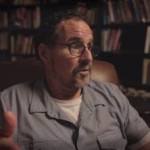We run our website the way we wished the whole internet worked: we provide high quality original content with no ads. We are funded solely by your direct support. Please consider supporting this project.
Does The Open View Limit God?
Suppose you and I both agree that God is omniscient and thus knows all of reality, but we disagree over, say, the number of trees on a certain plot of land. I say there are 1,300 and you say there are 2,300. You wouldn’t say that I am limiting God because he knows fewer trees in my view than he knows in your view. For the issue, of course isn’t about God’s knowledge at all; it’s about how many trees there are on this plot of land.
This illustrates precisely what is going on regarding the openness debate. The issue is not about God’s knowledge at all. Everyone agrees he knows reality perfectly. The issue is the content of the reality God perfectly knows—how many things and what kind of things there are on the “plot of land” we call the future.
If everything in the land of the future is settled, then we must all grant that God would perfectly know this. But if there are fewer things in the land of the future that are definite and more things that are possible, then we must grant that God would perfectly know this. It would be illegitimate for the former group to accuse the latter group of limiting God on the grounds that they deny some “definite realities” in the future. So too, it would be illegitimate for the latter group to accuse the former group of limiting God on the ground that they deny some “possibilities” in the future. The issue is not about the scope or perfection of God’s knowledge at all!
Many evangelicals have accused open theists of limiting God by denying that he foreknows the future as exhaustively settled because they assume that the future is exhaustively settled. If this assumption is granted, then of course anyone who denied that God foreknew the future as exhaustively settled would be limiting God. But open theists do not share this assumption. The accuracy of the classical assumption that the future is exhaustively settled needs to be examined in the light of Scripture (Something I’ve done in God of the Possible and Divine Foreknowledge: Four Views.) Construing this issue as a debate about the perfection of God’s knowledge only serves to cloud the issue and instills fear in the minds of people.
Instead of limiting God, the open view actually depends upon the infinite intelligence of God. We might imagine God as something like an infinitely intelligent chess player. I am told that the average novice chess player can think ahead three or four possible moves. If I do A, for example, my opponent may do B, C, or D. I could then do E, F, or G, to which he may respond with H, I, or J. By contrast, some world-class chess masters can anticipate up to thirty combinations of moves. Now consider that God’s perfect knowledge would allow him to anticipate every possible move and every possible combination of moves, together with every possible response he might make to each of them, for every possible agent throughout history. And he would be able to do this from eternity past.
Isn’t a God who is able to know perfectly these possibilities wiser than a God who simply foreknows or predetermines one story line that the future will follow? And isn’t a God who perfectly anticipates and wisely responds to everything a free agent might do more intelligent than a God who simply knows what a free agent will do? Anticipating and responding to possibilities takes problem-solving intelligence. Simply possessing a crystal ball vision of what’s coming requires none.
—Adapted from God of the Possible, pages 125-128
Category: Q&A
Tags: Calvinism, Divine Foreknowledge, Future, God of the Possible, Open Theism
Topics: Attributes and Character, Responding to Objections
Related Reading

What is the significance of Deuteronomy 9:13–14, 18–20, 25?
The Lord tells Moses “Let me alone that I may destroy them [the Israelites] and blot out their name from under heaven…” (vs. 14). Moses later says to the Israelites, “the Lord intended to destroy you” (vs. 25). Moses interceded for forty days and then tells the Israelites, “the Lord listened to me…” (vs. 19).…

How do you respond to 1 Timothy 4:1–3?
“…in the later times some will renounce the faith by paying attention to deceitful spirits and teachings of demons, through the hypocrisy of liars whose consciences are seared with a hot iron. They forbid marriage and demand abstinence from foods…” New Testament authors considered themselves to be living “in the later times” (e.g. Acts 2:17;…

Why do you claim that everybody, whether they know it or not, believes that the future is partly open?
Whatever a person may theoretically believe, they act like the future is partly open. For, as a matter of fact, there’s no other way to act. Think about it. Every time we deliberate between options on the way toward making a decision, we assume (and we have to assume) that a) the future consists of…

Revelation 17:8 refers to people whose names haven’t been written in “the book of life from the creation of the world.” Doesn’t this conflict with open theism?
As in Revelation 13:8, the clause “from the foundation” (apo kataboleis) need not mean “from before the foundation” but simply “from the foundation” (= since the foundation). It’s not that names either were or were not written in the “book of life” before they were ever born. Rather, throughout history, in response to the choices…

Does God Change His Mind?
Classical theologians usually argue that texts that attribute change to God describe how he appears to us; they do not depict God as he really is. It looks like God changed his mind, but he really didn’t. Unfortunately for the classical interpretation, there are many texts that do not say, or remotely imply, that it…


